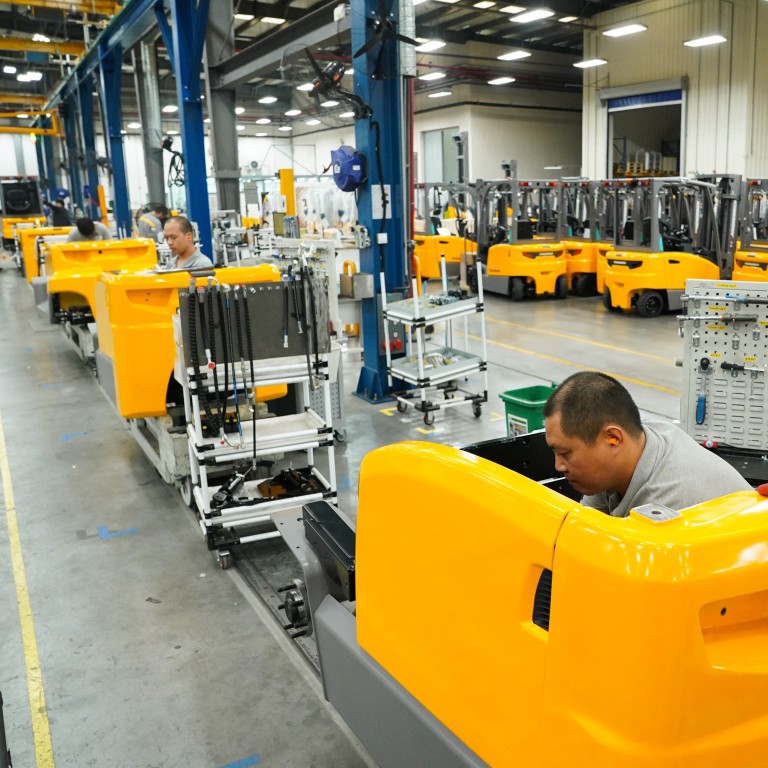
Coronavirus: Shanghai’s ‘white-listed’ manufacturers operate at a fraction of capacity as supply chain disruptions hobble recovery
- The dire scenario has exacerbated worries about the potential severity of an economic slowdown and the scale of job losses that may result
- Two officials with key manufacturers on the Shanghai government’s so-called white list said they would have to slash jobs even after the lockdown is lifted
Two company officials with key manufacturers on the Shanghai government’s so-called white list said they would have to slash jobs even after the lockdown is lifted.
The damage to their business operations caused by the lockdown has been too savage to absorb, they said, resulting in redundant capacity at the manufacturing plants.
Shanghai, the epicentre of the mainland’s latest Covid-19 outbreak, went into a citywide lockdown on April 1, and most manufacturers halted production.
Since mid-April, the municipality has allowed about 2,000 key manufacturers to resume production under a so-called “closed loop” system – workers essentially sleeping on site to avoid contact with outsiders.
But the policy has failed to soothe business leaders’ anger about the stringent virus control and prevention measures.
Joerg Wuttke, president of the European Union Chamber of Commerce in China, said last week that the number of businesses allowed to restart operations represented just “a drop in the ocean”.
A survey of 142 Shanghai-based companies by the official Shanghai Securities News showed that only 30 per cent of their production capacity was up and running again as of May 7.
The respondents said a shortage of lorries travelling between Shanghai and neighbouring cities, and a supply chain bottleneck, had prevented them from getting production facilities back running at full tilt.
The result echoed a poll conducted by the American Chamber of Commerce early this week, which said 15 per cent of white-listed US companies with operations in Shanghai had yet to reopen by May 5.
Nearly 60 per cent of respondents in that survey reported reduced production capabilities caused by a lack of employees and an inability to get hold of raw materials.
“But the grim reality is that the production resumption by those large-scale manufacturers is not enough to ease the economic woes that Shanghai is facing,” said Gao Shen, an independent analyst of manufacturing industries in Shanghai. “Their operations will not return to normality until all the supply chain vendors can restart production.”
Shanghai has yet to unveil a time frame for lifting the lockdown, which is now into its sixth week.
“Our heart is bleeding,” said Han Haifeng, chief executive of Shanghai New Era Printing, which supplies packaging materials to exporters. “We received a big number of orders from our clients but are unable to execute them because my firm in not on the white list.”
Shanghai is striving to achieve what it calls a societal zero-Covid goal, eliminating cases entirely from low-risk, unguarded zones, while limiting infections among people already in quarantine.
A city government official said the municipality aimed to accomplish the goal in the next five days before it could consider easing the draconian lockdown measures.


